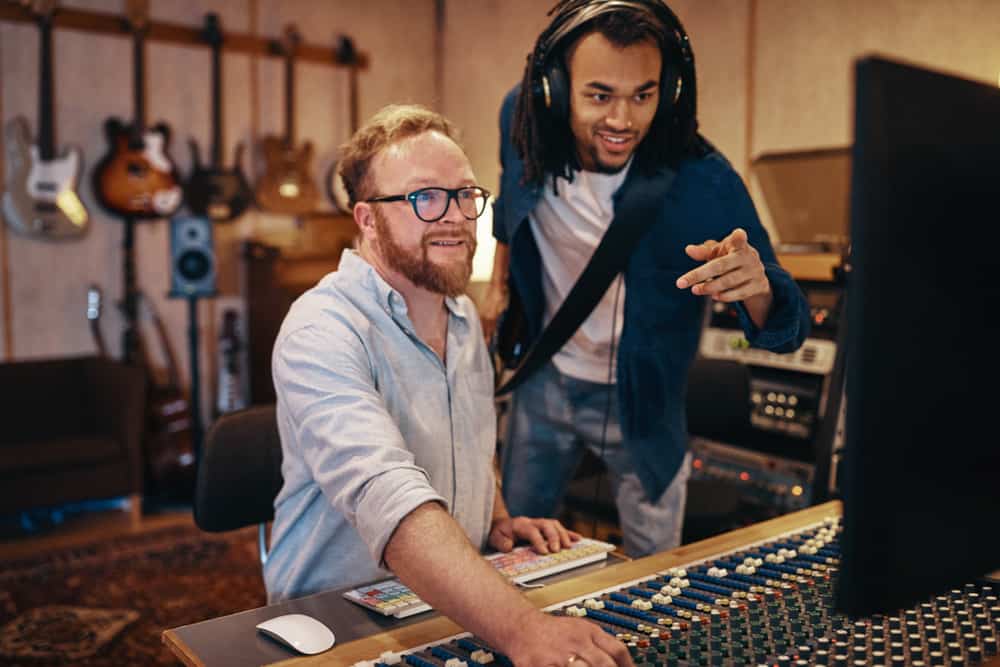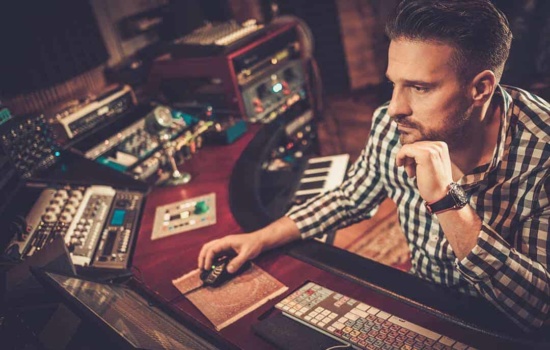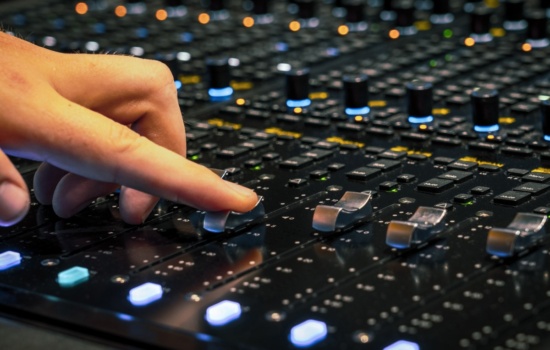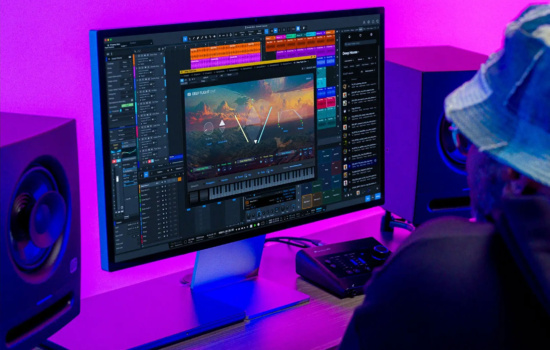Audio production, usually called music production, is the process of recording and arranging a song.
Audio production doesn’t just include music producers.
Also involved is the audio engineer, mixing engineer, and mastering engineer.
For example, the sound of an acoustic guitar can change drastically depending on how the audio engineer sets up the mic. That’s a production choice.
The mixing and mastering engineers have to decide what effects and plugins to use on what instruments. Those are production choices.
But ultimately, the music producer is the one who helps guide the song to its final, strongest form.






